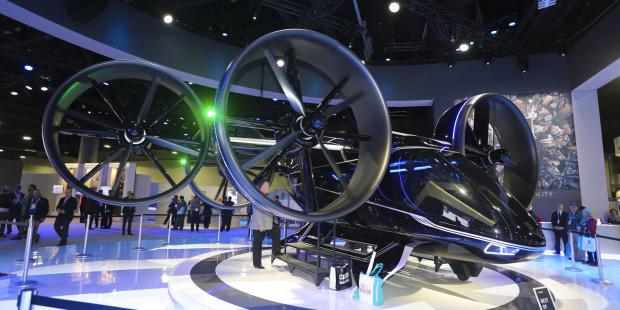
Breaking News
 Sunday FULL SHOW: Newly Released & Verified Epstein Files Confirm Globalists Engaged...
Sunday FULL SHOW: Newly Released & Verified Epstein Files Confirm Globalists Engaged...
 Fans Bash Bad Bunny's 'Boring' Super Bowl Halftime Show, Slam Spanish Language Performan
Fans Bash Bad Bunny's 'Boring' Super Bowl Halftime Show, Slam Spanish Language Performan
 Trump Admin Refuses To Comply With Immigration Court Order
Trump Admin Refuses To Comply With Immigration Court Order
 U.S. Government Takes Control of $400M in Bitcoin, Assets Tied to Helix Mixer
U.S. Government Takes Control of $400M in Bitcoin, Assets Tied to Helix Mixer
Top Tech News
 SpaceX Authorized to Increase High Speed Internet Download Speeds 5X Through 2026
SpaceX Authorized to Increase High Speed Internet Download Speeds 5X Through 2026
 Space AI is the Key to the Technological Singularity
Space AI is the Key to the Technological Singularity
 Velocitor X-1 eVTOL could be beating the traffic in just a year
Velocitor X-1 eVTOL could be beating the traffic in just a year
 Starlink smasher? China claims world's best high-powered microwave weapon
Starlink smasher? China claims world's best high-powered microwave weapon
 Wood scraps turn 'useless' desert sand into concrete
Wood scraps turn 'useless' desert sand into concrete
 Let's Do a Detailed Review of Zorin -- Is This Good for Ex-Windows Users?
Let's Do a Detailed Review of Zorin -- Is This Good for Ex-Windows Users?
 The World's First Sodium-Ion Battery EV Is A Winter Range Monster
The World's First Sodium-Ion Battery EV Is A Winter Range Monster
 China's CATL 5C Battery Breakthrough will Make Most Combustion Engine Vehicles OBSOLETE
China's CATL 5C Battery Breakthrough will Make Most Combustion Engine Vehicles OBSOLETE
 Study Shows Vaporizing E-Waste Makes it Easy to Recover Precious Metals at 13-Times Lower Costs
Study Shows Vaporizing E-Waste Makes it Easy to Recover Precious Metals at 13-Times Lower Costs
New battery technology to take electric VTOL vehicles off the ground

According to the Pennsylvania State University (Penn State) researchers, batteries for eVTOL vehicles have special requirements. Given these requirements, the scientists say the batteries will be built with these specific specifications in mind.
The Penn State researchers reported their findings alongside prototype eVTOL battery designs in a June 7 study published in Joule. They noted that eVTOL vehicles "have attracted considerable interest as a disruptive technology to transform future transportation systems." However, the researchers acknowledged that the batteries' unique operating profiles and requirements pose hurdles to be overcome by future battery technologies.
Study author Chao-Yang Wang said: "I think flying cars have the potential to eliminate a lot of time, increase productivity and open the sky corridors to transportation. Commercially, I would expect these vehicles to make 15 trips twice a day, during rush hour, to justify the cost of the vehicles. The first use will probably be from a city to an airport, carrying three to four people about 50 miles."
But Wang acknowledged that creating batteries to match the needs of eVTOL vehicles is not a walk in the park. "Batteries for flying cars need very high energy density so that [they] can stay in the air. [They] also need very high power during takeoff and landing. It requires a lot of power to go vertically up and down," he said.
The study author also noted that eVTOL vehicle batteries must have the ability to be recharged rapidly to match vehicles' frequent takeoffs and landings. A battery typically charges easily when empty, but charging takes longer and becomes more difficult as it stores more energy. Heating the battery, however, keeps the battery charging time short.

 Smart dust technology...
Smart dust technology...

